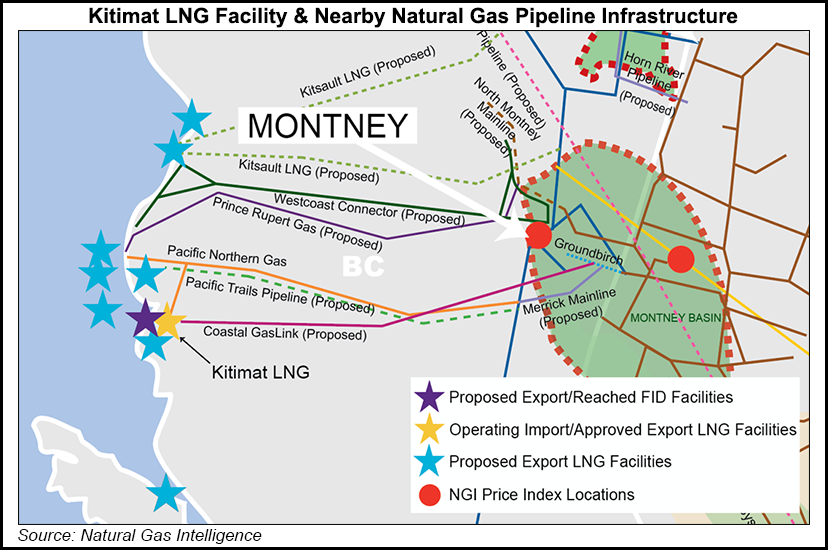Shale Daily | E&P | Infrastructure | NGI All News Access
Coastal GasLink Construction to Proceed in British Columbia with Tentative Agreement
After a four-day pause, TC Energy Corp. claimed the natural gas pipeline Coastal GasLink (CGL), which is traversing gassy fields of the Western Canadian Sedimentary Basin to supply a liquefied natural gas (LNG) project underway, was back on track in northern British Columbia (BC).

CGL President David Pfeiffer described as “significant progress” a tentative agreement announced Sunday by Wet’suwet’en tribe leaders, federal Crown-Indigenous Relations Minister Carolyn Bennett and her BC counterpart, Scott Fraser.
Pfeiffer said CGL management “appreciates that a path has been identified to address significant issues of aboriginal title and rights of the Wet’suwet’en people while recognizing that Coastal GasLink is fully permitted and remains on track for a 2023 in-service date.”
The agreement’s contents were being kept confidential while acceptance was sought from members of factions in a rights dispute between elected and hereditary chiefs that boiled over into railway blockades across Canada.
The truce talks began after police ended 17 days of train disruptions by enforcing court injunctions against barricades erected by supporters of a native rights crusader faction among Wet’suwet’en hereditary clan leaders. Elected tribal chiefs and councils have made cooperation and benefits agreements with CGL.
Bennett, Fraser and Wet’suwet’en hereditary Chief Woos indicated the tentative truce would create a process for defining shared rights on 22,000 square kilometers (8,800 square miles) of northern BC that the tribe claims as traditional territory.
CGL is designed to supply gas for the LNG Canada export project under construction on the west coast near Kitimat, BC.
LNG Canada sponsors Royal Dutch Shell plc, Petronas, PetroChina Co. Ltd., Mitsubishi Corp. and Korea Gas Corp. Sunday they were “encouraged to see the progress made by the federal and provincial governments and the Wet’suwet’en hereditary chiefs and want to thank all parties involved for taking the time to engage in dialogue and discussion.”
© 2024 Natural Gas Intelligence. All rights reserved.
ISSN © 2577-9877 | ISSN © 2158-8023 |
